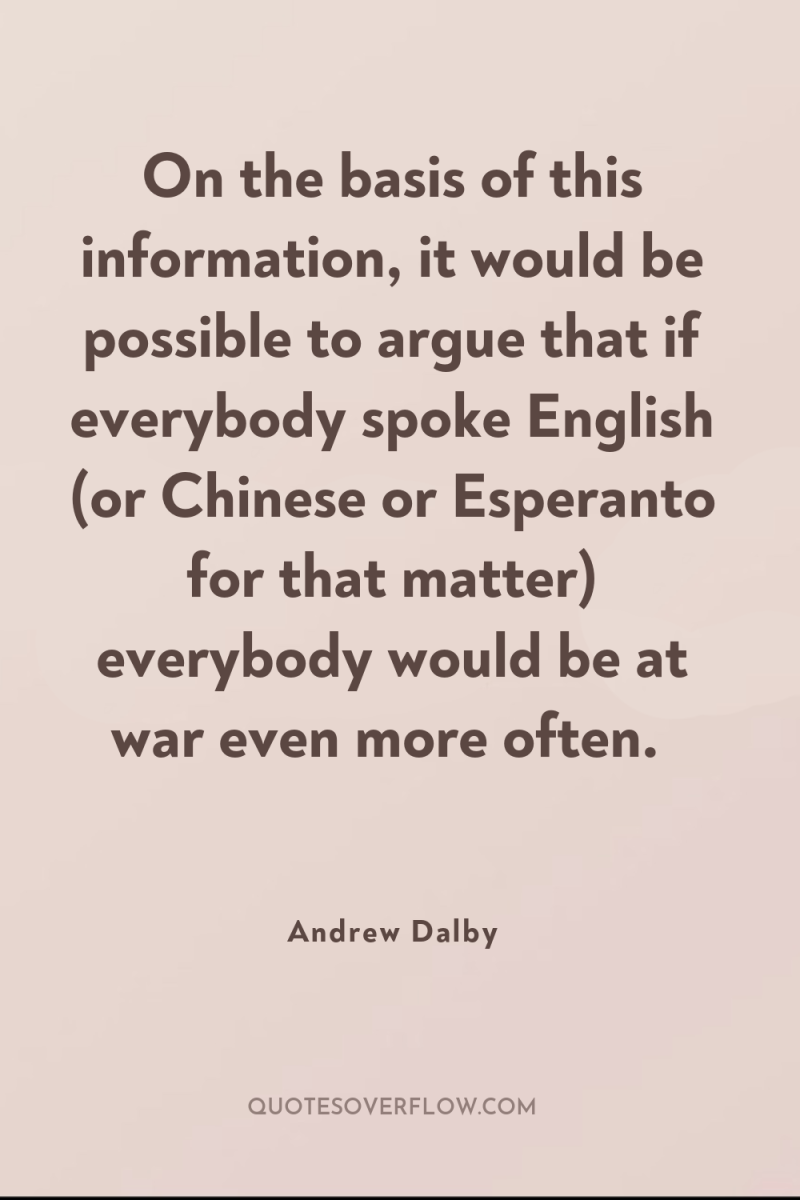1
The fact that in the twentieth century a greater proportion of the people in the world could communicate with one another, using English or just a few other languages, appears not to have stopped any wars, nor to have reduced the frequency with which wars have broken out, nor to have made the wars that have broken out less brutal. In fact, several murderous wars have been fought recently among people who speak 'the same language' in real terms.Andrew Dalby

2
On the basis of this information, it would be possible to argue that if everybody spoke English (or Chinese or Esperanto for that matter) everybody would be at war even more often.Andrew Dalby
3
Teachers were powerful enough to kill the indigenous languages: they are not powerful enough to bring them back to life.Andrew Dalby
4
It happens all too often - people regret that their language and culture are being lost but at the same time decide not to saddle their own children with the chore of preserving them.Andrew Dalby
5
If two thousand five hundred languages are to be lost in the course of the twenty-first century, don’t be in any doubt about what that means for us: in each of those two thousand five hundreds cases a culture will be lost.Andrew Dalby
6
Words for completely novel concepts and technical breakthroughs are devised as soon as needed, explained with ease and absorbed with scarcely an effort by all who need them. This ability to innovate in language is crucial to every scientific advance, to our intellectual curiosity, to our originality as human individuals, because it is crucial to our ability to communicate new ideas and discoveries.Andrew Dalby